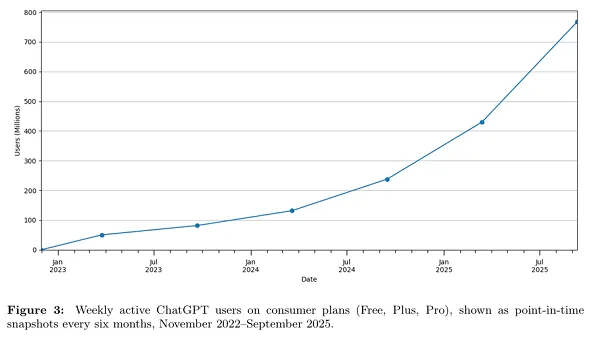How to Run a Remote Digital Marketing Agency
Are you thinking of launching & running a remote digital marketing agency? Then, you already know that the remote work revolution is transforming the entire digital marketing industry. That surge in remote work transforms the landscape of marketing agency...

Are you thinking of launching & running a remote digital marketing agency? Then, you already know that the remote work revolution is transforming the entire digital marketing industry. That surge in remote work transforms the landscape of marketing agency remote jobs as well. Considering that remote working offers exciting opportunities for aspiring entrepreneurs is not surprising.
So much so that a 2023 report by Upwork found that 64 million people performed remote work, just in the United States – that’s big! That trend also means the number of people running remote work has also risen. And we cannot ignore that big trend & fact. Now, we’ll explore the benefits and challenges associated with establishing a remote digital marketing agency. Ready?
What Is a Remote Marketing Agency? What’s the Difference?
True to its name; a remote marketing agency is a marketing agency whose team members work “entirely remotely,” meaning they don’t have a physical office space and collaborate online using various communication tools.
When it comes to comparison, while the remote work setup is undeniably different from the traditional office setting, both types of marketing agencies (traditional vs. remote) often share many similarities in core areas.
Here is a quick chart comparing traditional marketing agencies and remote ones:
Why Do Agencies Go Remote? Pros & Cons
Why do a great number of communities go remote – in other words, why are they removing the geographical constraint of a physical office?
Finding the answer is not a long shot. Remote marketing agencies have seen a surge in popularity since these agencies offer undeniable benefits. Like access to a wider talent pool, potentially lower overhead costs, and increased flexibility for both employees and clients.
However, it’s crucial to approach this trend with a critical yet balanced perspective, acknowledging both the advantages and potential challenges. Let’s focus on the pros and cons of remote agencies:
Prioritizing Work-Life Balance
The remote work model in digital marketing companies provides a great chance for increased work-life balance. In addition to achieving this balance is only possible with both employees’ and employers’ approaches, remote work itself offers greater flexibility in scheduling.
At that point, we need to remind you that the accessibility of technology and the pressure to be constantly available can contribute to an “always-on” culture, potentially leading to burnout and hindering work-life balance.
Similarly, unclear expectations and undefined boundaries can lead to employees feeling pressured to work extended hours or be available outside of designated work times, negatively impacting work-life balance. (So, play it safe.)
Retaining More Employees
While remote work offers attractive benefits like flexibility and a wider employee pool, it also presents opportunities for retaining employees compared to traditional agencies. Since remote work eliminates the daily commute, it leads to increased employee satisfaction and improved work-life balance. This can contribute to lower employee turnover.
Best part? Eliminating the commute frees up time and reduces stress, leading to increased productivity and improved well-being for employees.
Reducing Outgoings
Maybe the first & bold reason to go beyond seems the reduced overhead costs. Without the expenses associated with a physical office, such as rent, utilities, and office equipment, remote agencies can operate with lower overhead costs. According to a 2022 study by Owl Labs, remote work can save businesses an average of $11,000 per employee annually, primarily due to reduced office space expenses.
It also refers to increased profitability for the agency or competitive rates for clients.
While physical office expenses might decrease, investments in remote working modules, like communication & cybersecurity tools can add up. Additionally, depending on location, offering competitive salaries to remote talent might negate the cost savings.
How to Start a Remote Digital Agency: First Steps to Take
After all these, it’s high time to guide you through the initial steps, equip you with essential information, and provide valuable insights to help you build a thriving remote team.
Hire the Right People (Self-Responsible & Used to Work Remotely)
A home truth is that remote agencies can tap into a global talent pool, allowing them to find highly skilled individuals regardless of their location. This can lead to diverse teams capable of tackling complex marketing challenges.
However, accessing a wider pool of talent does not always mean building a specialized remote team is a picnic. Sometimes, vetting and ensuring the quality of remote talent can be more challenging compared to local candidates. Cultural nuances and communication barriers might also arise.
So, we recommend you take your time to analyze what your team actually needs and build some vetting lists. At that point, ensure that you have a rigid hiring process leading you to find remote candidates fitting your agency culture.
Invest in Tools & Tech
Yes, the success of a remote marketing agency hinges heavily on its tech stack. And, undoubtedly, investing in the right tools and technology is a great & easy way to streamline workflows, communication, and team collaboration.
Especially tools like video conferencing platforms, file-sharing platforms, and chat software enable seamless collaboration between team members regardless of location. On the other hand, balancing the cost of various tools with the agency’s budget can be challenging. Finding cost-effective solutions that meet specific needs is crucial. It means that before establishing your remote agency, it is best to take a glance at our list of the best tools for agencies.
Standardize Internal Communication
Undoubtedly, standardized communication ensures everyone in your team receives the same info at the same time. It also fosters clarity and reduces confusion while ensuring everyone is on the same page. On the other hand, consistent internal communication practices build trust and transparency among your team. Even in a remote agency setting, building a stronger team culture and a sense of belonging is possible in that way.
Here are a piece of recommendations to streamline remote agency communication:
⚡️ Create guidelines for preferred communication methods for different situations (e.g., email for formal announcements, instant messaging for quick updates),
⚡️ Via cutting-edge tools, facilitate organized info-sharing & task management,
⚡️ Encourage open and honest communication within the team by creating opportunities for feedback and discussion,
⚡️ Regularly scheduled virtual meetings (e.g., weekly team huddles, and project updates) for real-time discussion.
How to Run a Remote Digital Agency: Next & Essential Steps to Take
Building a remote team requires ongoing effort, clear communication, and a commitment to creating a collaborative work environment. Other key ingredients? Keep reading.
Consider the Time Differences
Even the phrase “time zone” can present a unique challenge for dispersed teams. As we all know real-time collaboration can be difficult due to time zone disparities.
However, by acknowledging the realities of time differences and implementing some strategic solutions it is possible to ensure smooth communication. Using communication tools for leaving messages, sharing documents, and collaborating asynchronously on their schedules is a good call. Establishing clear communication protocols and deadlines or designating core work hours for the entire team also works.
Create a Flexible Space – Get Rid of Strict Working Hours
As we mentioned before, the remote work model offers your team members greater flexibility in managing work schedules and personal commitments. This can be especially appealing to individuals seeking a better work-life balance.
So, it is best to retain that culture and respect that balance. Asking for work in leisure time & holidays or obliging employees for overtime since “they’re just working from home” shatters that culture.
Finally, it is best to allow your team members to manage their workload and create a schedule that suits their needs.
Get an Online HR Tool
As already known, online HR tools can automate many tasks related to human resources – payroll, benefits administration, time tracking, and performance management. – They also free up valuable time for you/your HR team. More importantly, online HR tools enable your each team member to access HR info and services from anywhere with an internet connection.
What’s more, many tools available offer some features like chat rooms, online surveys, etc. It fosters communication between HR and teams across diverse locations.
Get Feedback from Your Team
Feeling heard and valued through feedback is important for remote workers as well. That’s why we recommend remote agency owners regularly request feedback.
Regular feedback also helps find out unidentified challenges & opportunities that might be missed. Identifying them translates to better resource allocation and a more positive remote work experience.
Last but Not Least: Invest In Employee Well-Being
As we already mentioned, the lack of physical separation between work and personal life in a remote setting can lead to work encroaching on personal time, making it difficult to “switch off” and maintain healthy boundaries.
In addition to respecting boundaries and avoiding work-related communication outside of work hours, we recommend you support them by investing in their mental health. Offering resources and support for mental health and well-being is the best way to encourage employees to prioritize well-being alongside their professional goals.
Final Question: Worth It?
Going remote is not a guaranteed path to success for every agency; in other words, it is not possible to say that establishing a remote digital agency always gives you the expected & worth your investments.
Before making up your mind about launching a remote marketing agency, carefully consider your specific needs, culture, and target market. Embrace the potential benefits while strategizing to mitigate potential challenges. Open internal & external communication, robust infrastructure, and a focus on building a culture are key ingredients for success in remote digital agency areas.

 Tekef
Tekef 











_2.jpg)




















